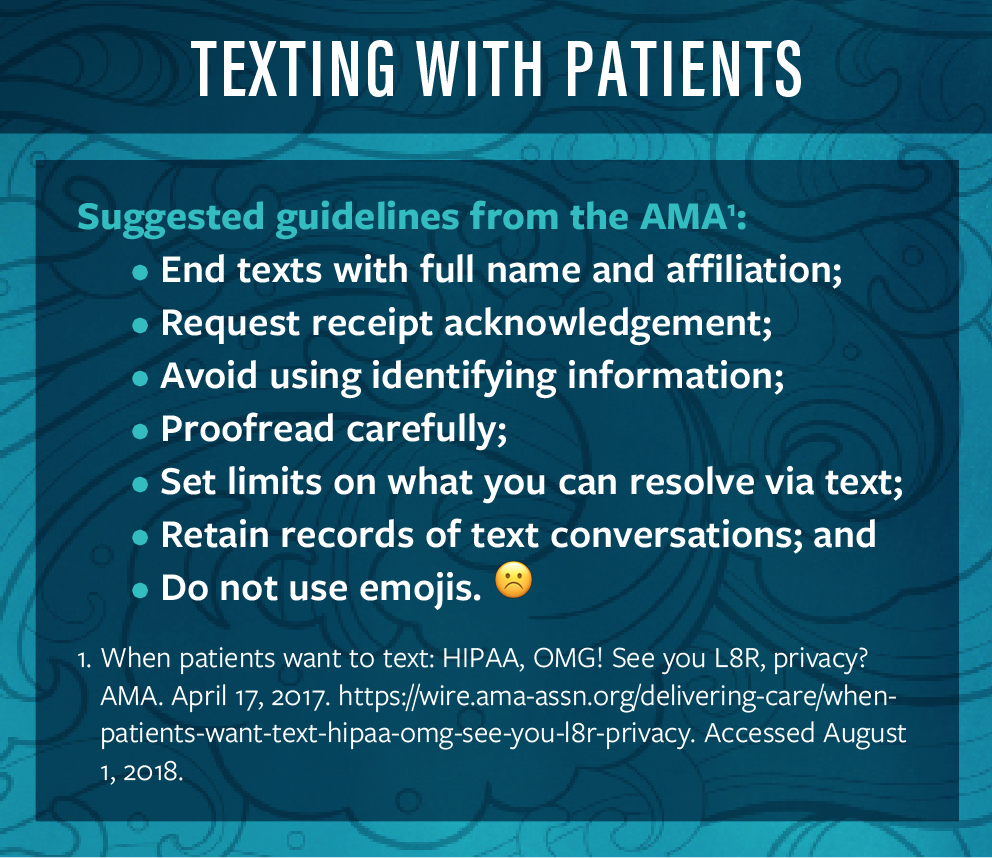Patients are free to discuss details of their treatment—they can describe exactly what you said and did and describe the outcome, even if those facts are misrepresented. However, as a doctor, you can’t mention such things publicly.
The fairness of this rule is debatable, but its enforceability is not. Violations of the Health Insurance Portability and Accountability Act of 1996 (HIPAA) privacy rules can cost hundreds of thousands of dollars, not to mention potential damage to your professional reputation. Yet, an analysis by ProPublica found privacy or HIPAA mentioned in thousands of one-star physician reviews. In dozens of incidents, responses by physicians to one-star reviews by patients then escalated beyond the initial complaint into a dispute about patient privacy.
In light of worry about violating HIPAA regulations, you may have been advised to simply ignore bad reviews. That is the safest option in terms of legality. However, it may not be the best move for effective reputation management. So, what can you do?
1. Talk Back
Simply stated, it is a myth that you cannot respond publicly to a negative review. HIPAA’s privacy rules forbid you from divulging any patient information. However, you can post a reply discussing your policies, standard of care, and other general information. Do not attempt to resolve a complaint on a public forum. If you leave a reply, it should be for the benefit of other viewers.
- Use this strategy when you are concerned about potential patients seeing a bad review and want to defend your practice.
- Do talk about your practice. Discuss your dedication to customer service, qualifications, office protocols, or other relevant topics—in general terms. The message should be one that would still make sense if it were said to a non-patient.
- Don’t talk about the reviewer or confirm in any way that the individual is a patient. Make no mention of the person’s condition, treatment, or experience with your practice. Even if a patient divulges his or her own information, you cannot repeat it.
2. Keep it Private
Often, people leave negative reviews in anger, feeling like they have no other options. Some might not bother contacting your office because they assume the staff will ignore them. In other cases, the person might have attempted direct contact but felt dissatisfied with the response.
While you cannot discuss details of the issue on a public forum, you can invite the reviewer to call or email your practice directly. Better yet, invite the person to come in and speak with you. In these situations, individual attention and a demonstration of excellent customer service can go a long way toward turning around an unhappy patient.
- Use this strategy when you believe the issue can be resolved.
- Do use direct messaging (available on Yelp and most other platforms) and ask the person to contact you.
- Don’t reveal any patient information. These direct message apps are not HIPAA-compliant, so you should use the same precautions that you would on a public forum.
3. Take Action
Reviews are rarely detail-accurate. An unhappy patient might leave out pertinent details or misrepresent events. However, a falsified review is something completely different. Maybe a patient is telling blatant lies about what happened in your office, or maybe the person was never there at all.
Fake reviews from disgruntled employees, competitors, or vengeful patient are rare—but they happen, and they can be devastating, especially if there are multiple instances. The good news is, most platforms have an option to report fraudulent reviews. The bad news is, you have little recourse if the host refuses to take it down.
- Use this strategy if someone is attempting to sabotage your practice with fraudulent reviews.
- Do report falsified reviews, using the links or instructions provided by the host site.
- Don’t report reviews that are based on truth, even if they are skewed in a negative light.
4. Bury the Bad Stuff
Good reviews are your best weapon against bad reviews. Therefore, the more reviews your practice accumulates, the less credibility negative ones will have. Be proactive and focus on building your reputation at all times, but redouble your efforts if a negative review shows up.
There are numerous ways of increasing your patient feedback. Whether it is in the form of a simple verbal request, an automated email, or a text message, people are more likely to leave reviews if you just ask.
- Use this strategy—always!
- Do encourage patient feedback, provide instructions for posting reviews on your preferred sites, and request permission to share testimonials on your own website.
- Don’t make patients feel pressured to leave a review, and don’t share any testimonials without HIPAA-required written permission.

Final Note: Play it Safe
Learn the law. Appoint a HIPAA compliance manager at your practice. When in doubt, consult your attorney. Violations of privacy are not only legal infractions, but also violations of patient trust. Never take chances.



